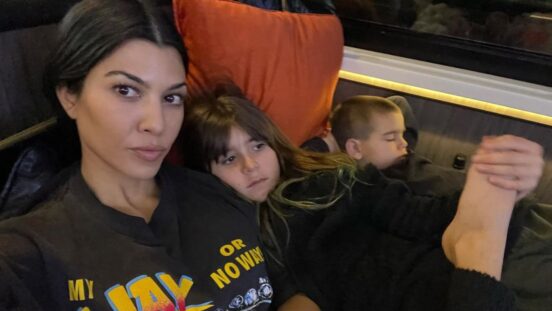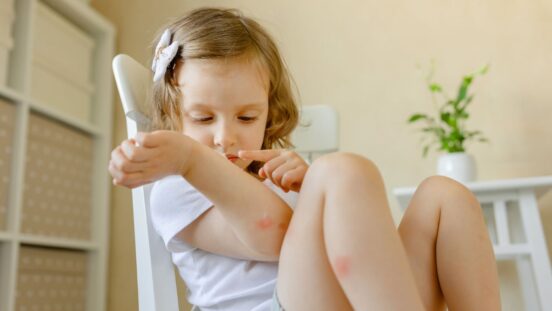What to do when there’s whooping cough at your child’s school
Vaccination is the best protection.
Pertussis or 'whooping cough' is a highly contagious, and potentially very dangerous disease that is passed through communities via coughing and sneezing.
The vaccine-preventable disease is most dangerous for babies under six months of age, with around four to five of every 100 babies under three months old who contract whooping cough dying from complications arising from the disease.
So when it enters a school community, there is every reason for parents to be concerned.
Perhaps one of the biggest worries is the fact that pertussis has an incubation period of 7 to 20 days, meaning that when it gets into a community such a school, people may be highly contagious before they present with a single symptom.
With several cases of whooping cough in school aged children from South East Queensland and Northern NSW making headlines this week, we spoke with Catherine Hughes from The Immunisation Foundation of Australia to ask just how families can stay safe.

Riley Hughes passed away at just 32 days old after contracting whooping cough before he could be protected by vaccination.
Catherine's son, Riley Hughes passed away at just four weeks old after he contracted whooping cough.
His devastating last days have been documented through the 'Light for Riley' project where his parents, Catherine and Greg have been instrumental in the 'No jab, No Pay' policy and the introduction of a government supported third trimester maternal vaccinations to give newborn babies better protection from this horrific disease.
Whooping cough at your child’s school
NSW Health recommends:
-
Whooping cough starts like a cold and progresses to bouts of coughing that can last for many weeks. Older children may just have a cough that is persistent and may be worse at night. Children with these symptoms should see a doctor.
-
If your doctor diagnoses whooping cough in your school-aged child, please let the school know and keep your child at home until they have taken five days of antibiotics.
-
Keep coughing children away from babies.
"While it's not always possible, if your kid's school has an outbreak of whooping cough I would seriously reconsider bringing along your young baby to school drop-offs and pick-ups,' advises Catherine.
"While whooping cough can be really nasty in children, it can be absolutely horrific in young babies, and can even lead to death.
"If you're unsure whether your kids are up to date with their whooping cough vaccines, double-check with your GP. While the vaccines don't offer absolute protection, and there's still a chance your child could contract whooping cough, at least you know you've done everything you possibly can to protect them. And that's what our job is as parents – to protect them, and that includes vaccinating them."

The infection can occur even in fully-vaccinated children, but symptoms might bot be as easy to recognise.
Dr Rachel Heap, who recently gained fame when an immunisation meme she made went viral, says that ensuring your vaccinations are up to date is the surest way to stay safe during an outbreak.
"The safest and most effective way to protect your kids and your family from pertussis is to get vaccinated according to the schedule," she tells Now to Love.
"Parents need to keep up to date with their boosters at least every 10 years too."
Whooping cough is not always easy to recognise
A case of whooping cough will generally begin quite similar to a cold, with a runny or blocked nose, a mild fever and tiredness and aches.
A cough can develop quite early in the illness and usually gets worse over time, leading to uncontrollable coughing fits which can also cause the person to vomit or choke. The cough can last up to three months, and also can cause sleep disturbance due to the violent coughing. The cough can be severe enough to fracture ribs in both children and adults. Other side effects of the cough can include incontinence and burst blood vessels.
However, often the typical whoop sound (caused when taking a deep gasp for breath after a coughing fit) isn't present in people who have had vaccinations.
According to The Immunisation Foundation of Australia, "In babies, the cough may not be present or may not seem severe, but they can be seen to stop breathing and to turn blue, as well as being lethargic and not interested in feeding."
"I know some people don't vaccinate because they want their children to live a "natural" and "organic" life, but honestly there is nothing "natural" about contracting whooping cough," says Catherine.
"The toxins from the whooping cough bacteria can cause severe coughing fits, vomiting, pneumonia, heart damage, kidney damage, brain damage, requiring to all sorts of "un-natural" interventions. It's a disease that no child deserves."




